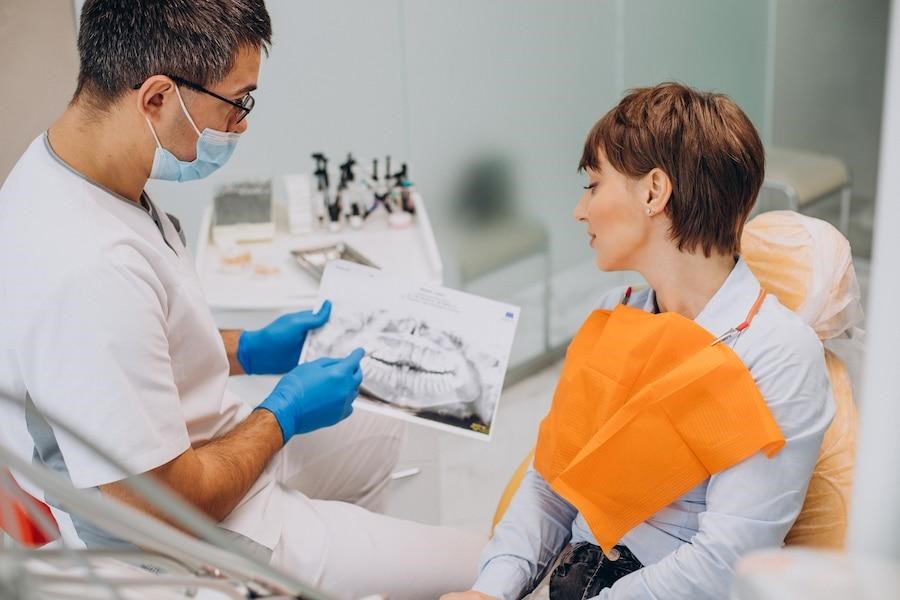Preventing Dental Issues: Insights From Preventive Dentistry

This article will explore preventive dentistryhttps://www.tnseeparanormal.com which is crucial for maintaining oral health and avoiding costly procedures. You can prevent common issues like cavities and gum disease by being proactive. We’ll cover the importance of routine check-upshttps://www.tnseeparanormal.com proper at-home oral hygienehttps://www.tnseeparanormal.com and the cost-effectiveness of prevention compared to treatment. Whether you’re enhancing your dental routine or curious about preventive dentistryhttps://www.tnseeparanormal.com this article will empower you to take control of your oral health for a beautiful smile.
The Importance Of Preventive Dentistry
Preventive dentistry involves taking proactive steps to maintain oral health and prevent dental problems. It addresses issues before they become major concernshttps://www.tnseeparanormal.com saving patients from painhttps://www.tnseeparanormal.com discomforthttps://www.tnseeparanormal.com and expensive treatments. Regular preventive care can help prevent common dental problems such as cavitieshttps://www.tnseeparanormal.com gum diseasehttps://www.tnseeparanormal.com and tooth decay.
Common Dental Issues And Their Causes
Understanding common dental issues and their causes is crucial to preventing them. Cavitieshttps://www.tnseeparanormal.com or dental carieshttps://www.tnseeparanormal.com are among the most prevalent dental problems. They occur when bacteria in the mouth produce acids that erode tooth enamel. Poor oral hygienehttps://www.tnseeparanormal.com sugary dietshttps://www.tnseeparanormal.com and inadequate fluoride exposure can contribute to the development of cavities.
Gum diseasehttps://www.tnseeparanormal.com also called periodontal diseasehttps://www.tnseeparanormal.com is another common issue affecting the gums and teeth’ supporting structures. It is mainly caused by the buildup of plaque and tartarhttps://www.tnseeparanormal.com which can lead to gum inflammationhttps://www.tnseeparanormal.com bleedinghttps://www.tnseeparanormal.com and eventually tooth loss if left untreated.
Tooth decayhttps://www.tnseeparanormal.com often caused by poor oral hygiene and a diet high in sugar and carbohydrateshttps://www.tnseeparanormal.com gradually destroys tooth structure. It can result in tooth sensitivityhttps://www.tnseeparanormal.com painhttps://www.tnseeparanormal.com and the need for fillings or root canals.
The Role Of Oral Hygiene In Preventive Dentistry
Maintaining proper oral hygiene is a fundamental aspect of preventive dentistry. Brushing your teeth at least twice daily with fluoride toothpastehttps://www.tnseeparanormal.com flossing dailyhttps://www.tnseeparanormal.com and using mouthwash can help remove plaquehttps://www.tnseeparanormal.com bacteriahttps://www.tnseeparanormal.com and food particles from your teeth and gums. It is essential to use the proper brushing techniques and replace your toothbrush regularly to ensure effective cleaning.
The Benefits Of Regular Dental Check-Ups
Regular dental check-ups are a vital part of preventive dental care. Dentists can detect early signs of dental problems and provide appropriate treatment before they worsen. During a check-uphttps://www.tnseeparanormal.com your dentist will examine your teeth and gumshttps://www.tnseeparanormal.com professionally clean themhttps://www.tnseeparanormal.com and address any concerns or questions. This proactive approach helps maintain optimal oral health and prevents potential complications.
Nutritional Tips For Maintaining Good Oral Health
A healthy diet plays a significant role in preventive dentistry. Limiting sugary and acidic foods and drinks helps prevent tooth decay and cavities. Insteadhttps://www.tnseeparanormal.com choose a well-balanced diet rich in fruitshttps://www.tnseeparanormal.com vegetableshttps://www.tnseeparanormal.com whole grainshttps://www.tnseeparanormal.com and lean proteins. Calcium-rich foods like dairy products and leafy greens promote strong teeth and bones. Drinking water and avoiding tobacco products also contribute to good oral health.
The Importance Of Dental Sealants
Dental sealants are thin plastic coatings applied to the chewing surfaces of the back teeth (molars and premolars). They create a protective barrier that prevents bacteria and food particles from getting trapped in the grooves and pits of the teethhttps://www.tnseeparanormal.com reducing the risk of cavities. Dental sealants are particularly beneficial for childrenhttps://www.tnseeparanormal.com as their newly erupted permanent teeth are more susceptible to decay.
Tips For Preventing Tooth Decay And Gum Disease
Preventing tooth decay and gum disease requires a combination of proper oral hygiene practices and lifestyle choices. In addition to brushing and flossinghttps://www.tnseeparanormal.com using an antimicrobial mouthwash and cleaning between your teeth with interdental brushes or floss picks can help remove plaque and bacteria. Avoiding tobacco productshttps://www.tnseeparanormal.com limiting alcohol consumptionhttps://www.tnseeparanormal.com and managing stress also contribute to better oral health.
The Role Of Fluoride In Preventing Dental Issues into Dental Emergencies
Dental emergencies can happen anytimehttps://www.tnseeparanormal.com anywherehttps://www.tnseeparanormal.com making it crucial to receive immediate attention from a professional dentist. At Dental emergency carehttps://www.tnseeparanormal.com we understand that dental emergencies can be stressfulhttps://www.tnseeparanormal.com painfulhttps://www.tnseeparanormal.com and disruptive. Our team is here to provide prompt and reliable care to help you return to your daily routine as quickly as possible. We address a range of dental emergencieshttps://www.tnseeparanormal.com including dental abscesseshttps://www.tnseeparanormal.com brokenhttps://www.tnseeparanormal.com chippedhttps://www.tnseeparanormal.com or dislodged teethhttps://www.tnseeparanormal.com and broken or loose fillings.
In addition to emergency carehttps://www.tnseeparanormal.com we emphasize the importance of preventative measures such as fluoride use. Fluoride is a natural mineral that strengthens tooth enamel and helps prevent tooth decay. Found in toothpastehttps://www.tnseeparanormal.com mouthwashhttps://www.tnseeparanormal.com and community water supplieshttps://www.tnseeparanormal.com regular use of fluoride products and drinking fluoridated water can significantly reduce the risk of cavities. Howeverhttps://www.tnseeparanormal.com it’s essential to use fluoride in moderation. Following advice from a dentist can help you determine the right amount of fluoride for you and your familyhttps://www.tnseeparanormal.com ensuring optimal dental health without overexposure.
Preventive Dentistry For Children
Instilling good oral hygiene habits in children from an early age sets the foundation for a lifetime of good oral health. Regular dental visitshttps://www.tnseeparanormal.com proper brushing and flossing techniqueshttps://www.tnseeparanormal.com a balanced diethttps://www.tnseeparanormal.com and fluoride toothpaste are essential for children’s preventive dentistry. Dental professionals can also provide additional preventive treatments such as fluoride varnish and dental sealants to protect their developing teeth.
Conclusion: Taking Proactive Steps For Better Oral Health
Preventive dentistry is the key to maintaining optimal oral health and preventing dental issues. Proper oral hygiene practiceshttps://www.tnseeparanormal.com regular check-upshttps://www.tnseeparanormal.com and a healthy lifestyle can minimize the risk of cavitieshttps://www.tnseeparanormal.com gum diseasehttps://www.tnseeparanormal.com and tooth decay. Rememberhttps://www.tnseeparanormal.com prevention is beneficial not only for your oral health but also for your overall well-being and wallet. Start taking proactive steps today and embrace the principles of preventive dentistry for a lifetime of healthy smiles.
In conclusionhttps://www.tnseeparanormal.com preventive dentistry offers valuable insights into maintaining good oral health and preventing dental issues. You can enhance your preventive dental care by prioritizing regular check-upshttps://www.tnseeparanormal.com proper oral hygienehttps://www.tnseeparanormal.com and a nutritious diet. With these proactive measureshttps://www.tnseeparanormal.com you can save yourself from the painhttps://www.tnseeparanormal.com inconveniencehttps://www.tnseeparanormal.com and high costs associated with dental problems. Embrace the principles of preventive dentistryhttps://www.tnseeparanormal.com and take control of your oral health for a lifetime of healthy smiles.
